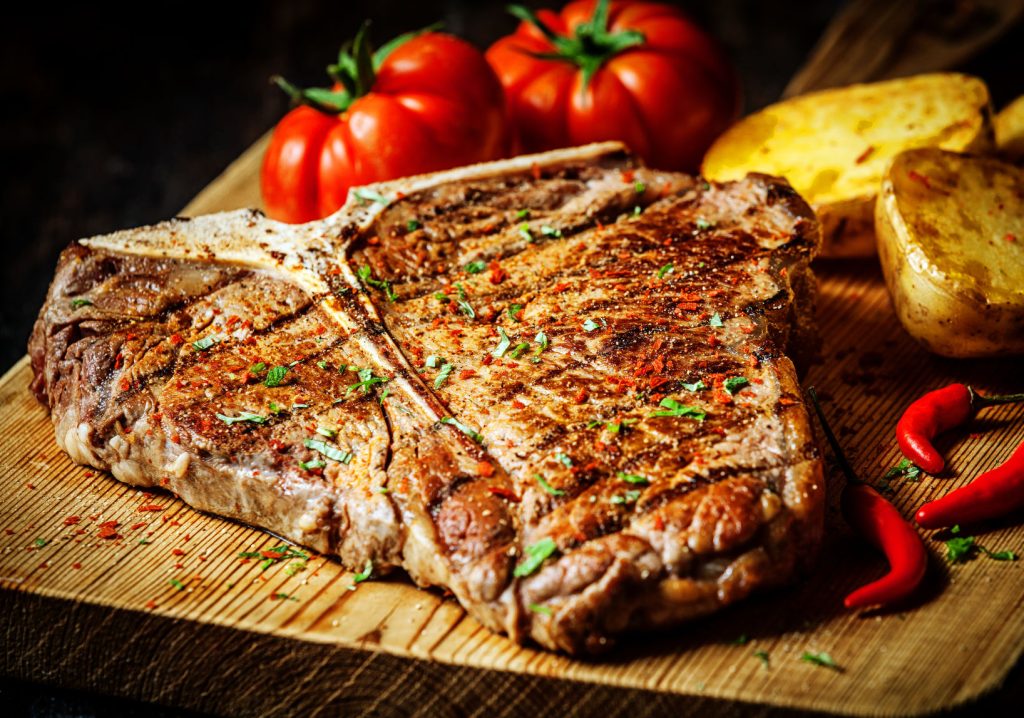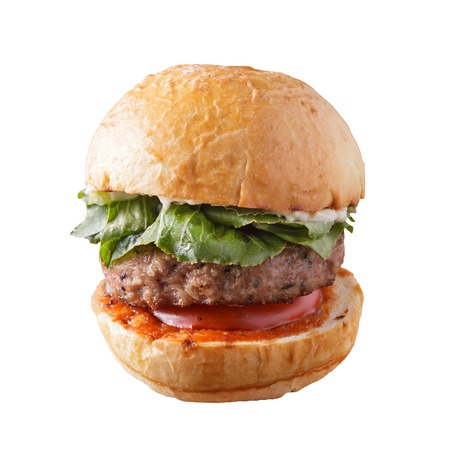Cooking Grass-Fed Meat

Did you know that grass-fed meat not only tastes great but is also nutritionally superior to grain-fed feedlot beef? Animals raised exclusively on grass produce meat that is high in omega-3 fatty acids, a nutrient that is lacking in the standard American diet. The meat of grain-fed animals, even those that were initially raised on grass but then transferred to feedlots to be fattened on grain lose their stores of omega-3s.
The meat from grass-fed animals is also the richest known source of another type of good fat called “conjugated linoleic acid” or CLA. When animals are raised on fresh pasture alone, their meat contains as much as five times more CLA than products from animals fed conventional diets.
And one more benefit: The meat from the pastured cattle is four times higher in vitamin E than the meat from the feedlot cattle.
Grass-Fed is Lower in Fat
Grass-fed beef is lower in fat, which means it can dry out or become overcooked more quickly than grain-fed beef. So the goal is to keep the meat moist.
Grass-Fed Cooks Faster
Grass-fed beef cooks faster than grain-fed, so use a lower heat setting on the stove or grill and use an internal thermometer to check for doneness. Remove from heat when it’s 5 degrees below the desired temperature, cover loosely with foil, and let it rest 5 minutes. During the resting period the internal temperature of the meat will continue to rise.
Tips for cooking Grass-Fed Meat
 When making burgers and meatloaf: Add juicy and flavorful ingredients to replace some of the missing fat. Combine ground beef with an ingredient that will retain moisture, such as minced onions, shredded veggies like carrots and zucchini, chopped bacon, or grated cheese.
When making burgers and meatloaf: Add juicy and flavorful ingredients to replace some of the missing fat. Combine ground beef with an ingredient that will retain moisture, such as minced onions, shredded veggies like carrots and zucchini, chopped bacon, or grated cheese.- Avoid cooking grass-fed steaks and burgers well done as they will likely be somewhat tough. Cook them to medium or medium rare and you will be much happier.
- Avoid unnecessarily poking the meat with a fork or knife as you will lose tasty juices.
- When grilling or frying burgers and steaks: take extra care to clean and oil the grill before cooking to ensure the meat won’t stick and pull and release precious juices and fat when you turn them. Oil a grill by soaking a paper towel with oil and rubbing it on the grill with tongs. Also preheat the grill or pan before cooking.